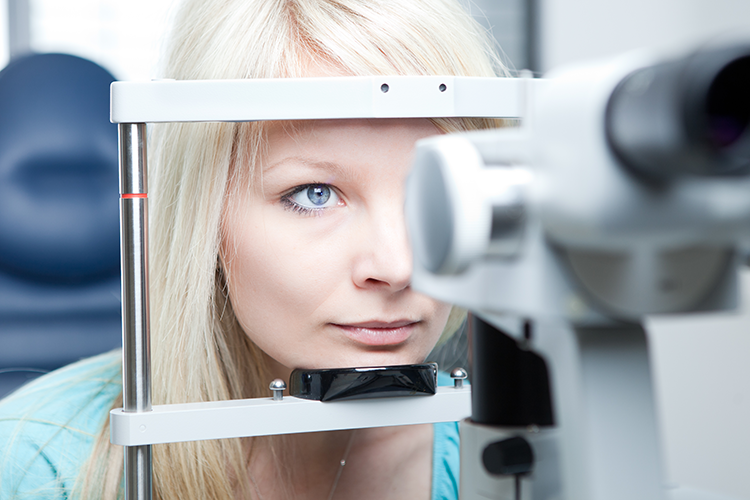
National Institutes of Health
Did you know that two-thirds of the people in the world affected by visual impairments and blindness are women, even though they represent only 53 percent of the population? Women are typically responsible for taking care of their families’ health concerns and often neglect their own health, including the health of their eyes.
April has been designated as Women’s Eye Health and Safety Month to help educate women about the steps that they must take to make their own eye health a priority and prevent vision loss.
Follow these simple steps for maintaining healthy eyes well into your golden years.
• Get regular eye exams.
Know your family’s eye health history. Talk to your family members about their eye health history. It’s important to know if anyone has been diagnosed with a disease or condition since many are hereditary. This will help to determine if you are at higher risk for developing an eye disease or condition.
• Eat right to protect your sight. You’ve heard carrots are good for your eyes. But eating a diet rich in fruits and vegetables, particularly dark leafy greens such as spinach, kale or collard greens is important for keeping your eyes healthy, too. Research has also shown there are eye health benefits from eating fish high in omega-3 fatty acids, such as salmon, tuna and halibut.
• Maintain a healthy weight. Being overweight or obese increases your risk of developing diabetes and other systemic conditions that can lead to vision loss such as diabetic eye disease or glaucoma. If you are having trouble maintaining a healthy weight, talk to your doctor.
• Wear protective eyewear. Wear protective eyewear when playing sports or doing activities around the home. Protective eyewear includes safety glasses and goggles, safety shields, and eye guards specially designed to provide the correct protection for a certain activity. Most protective eyewear lenses are made of polycarbonate, which is 10 times stronger than other plastics. Many eye care providers sell protective eyewear, as do some sporting goods stores.
• Quit smoking or never start. Smoking is as bad for your eyes as it is for the rest of your body. Research has linked smoking to an increased risk of developing age-related macular degeneration, cataract and optic nerve damage, all of which can lead to blindness.
• Be cool and wear your shades. Sunglasses are a great fashion accessory, but their most important job is to protect your eyes from the sun’s ultraviolet rays. When purchasing sunglasses, look for those that block out 99 to 100 percent of both UVA and UVB radiation.
• Give your eyes a rest. If you spend a lot of time at the computer or focusing on any one thing, you sometimes forget to blink and your eyes can get fatigued. Try the 20-20-20 rule: Every 20 minutes, look away about 20 feet in front of you for 20 seconds. This can help reduce eyestrain.
• Clean your hands and your contact lenses properly. To avoid the risk of infection, always wash your hands thoroughly before putting in or taking out your contact lenses. Make sure to disinfect contact lenses as instructed and replace them as appropriate.
